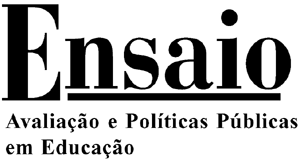The major policy change regarding the public universities has been the introduction of affirmative action in recent years to benefit black students. The program has been extended to benefit students from public schools. The reasoning behind supporting these students is to improve their opportunities to enter universities. It is important to have in mind that the decisions to start such programs were taken by the universities. As a result of the prevailing autonomy in designing and implementing these programs, there are differences among universities in the focus groups. Usually they can be black students or students from public schools. There are two mechanisms to favor the focus groups: the use of quota systems, which defines for each career the number of places to be distributed among those candidates called "cotistas" and the use of bonus, which consists of increasing, by a given percentage, the scores of all students enrolled in public schools and selected to participate in the program by needs criteria. Quota and bonus have different consequences for the selection of those to be the beneficiaries. Thus, a comparison is made between them. One fundamental argument against "cota" is the conflict between efficiency and equality. Presumably, higher scores in the entrance exams is a good indicator of learning at the university. On the other hand, equality of opportunities requires measures to increase the chances of those that otherwise would fail. The empirical work to explain the scores in the entrance exams calls the attention to the importance of the family status, which includes family income and parent's education level. Also, the choice of the career is important to explain the performance of the candidate. The students which chose the most prestigious courses have higher chances of being approved at the entrance exams. The possible correlation among the family variables, including the career prestige, is not detected. Regarding the school variables, only night classes are statistically and negatively significant to explain the score at the entrance exam.
Affirmative action; Family status; Quota systems and bonus; Focus groups












